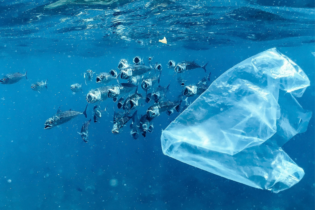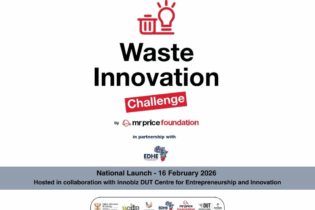The negative impact of waste on the environment and on people’s health is of on-going concern. Poor waste management places significant, and at times overwhelming, pressure on the capability of municipalities to manage waste. In order to address this issue, waste management strategies that are advanced, yet easy to implement and have measurable outcomes, are required.
Aurecon has a leading multidisciplinary team of waste specialists able to develop and manage appropriate waste management strategies. Local knowledge, combined with the group’s global expertise, produces innovative, best-in-industry solutions. Each phase of the waste management process is analysed and evaluated in order to produce the best possible solution tailored to the specific needs of a client.In this article, Nick Mannie, Aurecon Technical Director – Waste, relates how Gauteng’s Merafong City Local Municipality (MCLM) took bold steps towards ensuring sustainable waste management solutions, and shares lessons that can be learnt from their actions. 1. Identifying low-hanging fruits In 2011, the MCLM was faced with the task of disposing of over 150 000 tons of waste each year, collected from 36 000 households and businesses. After assessing the situation, Aurecon identified numerous problems, in many cases due solely to the use of plastic bags for the storing and disposing of waste. Key issues were: • Frequent spillages from torn or open bags resulted in unhygienic conditions, such as exposure to noxious streams of waste, flies and unpleasant odours
• Workers risked sprains from handling heavy bags and cuts from sharp objects in bags
• The collection process was time-consuming as workers needed to pick individual bags up one at a time
• The bags were unsightly and were frequently the source of windblown litter on residential streets. This was environmentally poor practice as the bags themselves introduced a secondary waste problem A simple solution In order to address the problem quickly and efficiently, Aurecon recommended a switch to 240l trolley (‘wheelie’) bins to replace the use of plastic bags. “Sometimes, when faced with massive challenges, it is best practice to identify easy actions which deliver big gains,” explains Mannie. “We found this to be true of the MCLM.” Apart from solving the problems listed above, the Municipality benefitted through a significant reduction in Health & Safety costs among employees, as well as the creation of revenue from selling additional wheelie bins to members of the community.
Discontinuing the use of plastic bags also raised awareness among residents of the need for responsible waste management. In addition, reducing the quantity of plastics in the landfill results in a reduced carbon footprint, demonstrating the Municipality’s commitment to the National Waste Management Strategy (2011) of South Africa. 2. Optimisation of waste collection service delivery
A major problem many local municipalities face is the issue of service delivery. “The MCLM was challenged by one service area in particular – that of their waste collection process,” says Mannie. “Once the Municipality had addressed the immediate challenge of replacing plastic bags with waste collection bins, they needed to arrive at a holistic solution to their broader waste collection challenges.”
In dire need of a tool to optimise the allocation of resources and improve efficiency, the Municipality engaged Aurecon to investigate and develop a management system for the improved collection of waste in the local municipality area.
Aurecon’s team, made up of Nick Mannie; Kobie Pretorius (Project Manager), and Hentie Viviers (Geographic Information System (GIS) and Data Management Professional) undertook to completely review the Municipality’s waste management procedures, and implement a sustainable scheme with substantial benefits for all the stakeholders. A holistic solution The solution lay in an effective information system that could measure service delivery at any given time. The new collection system was based on customised GIS modelling according to the MCLM’s specific requirements. The system was designed to take into account various factors such as the geographical area (location, population size and distance to the landfill or transfer station), future developments in the city, potential population growth, the timing and frequency of waste collection and, of course, the client’s resource allocation. The GIS modelling for optimal route planning is a considerable improvement on the Municipality’s existing approach, which had been to randomly designate certain days for collecting waste in certain areas. With this newly developed system, Aurecon was able to assess factors such as risk areas, inefficiencies and costs that were incurred daily during the waste collection process, and report back to the MCLM on their findings with innovative and practical recommendations.The latest information on all the solid waste sites and services within the jurisdiction of the Municipality was also incorporated into a database, allowing for the comprehensive compilation of best waste management practices. “The system we developed can now govern waste collection in order to make it optimal, through the calculation of factors like waste generation per suburb and the number of the rubbish trucks required,” explains Mannie. Aurecon’s GIS mapping and database also assisted the Municipality strategically in terms of long-term planning to ensure that resources, equipment and personnel will be efficiently utilised.
Some of the wide-ranging benefits of the system’s optimised route planning were: • The MCLM’s collection backlog was eradicated
• The risk of drivers missing areas or collection points was eliminated
• Travelling distances were lowered, reducing chances of truck breakdowns and significantly reducing fuel costs, which in turn effectively lessens the MCLM’s overall carbon footprint
• Productivity improved: the revised time scheduling demonstrated that the waste collection service could be maximised by implementing an additional shift per day. The use of equipment and personnel more efficiently neutralised the amount of overtime taken by municipal workers and the new system motivated them by allowing them to leave work early if they had completed their routing for the shift
• Customer satisfaction improved with the well-organised collection of waste, reflecting in minimised complaints from the 36 000 residents
• In addition, the MCLM is now better equipped to identify potential problems in advance and take timely preventative measures by re-optimising the routes
3. Lessons learnt When reviewing the way in which the MCLM handled their waste collection challenges, two important lessons emerge:
• Making small, simple changes (such as replacing plastic bags with bins) all the way through to a complete redesign of the current working system (as with a new waste collection route planning system) all have a place in the adoption of a holistic view of waste management
• Instead of incorporating waste management only as a means of cleaning up a messy and unhygienic situation, it is far smarter and more cost-effective to avoid the situation by integrating an effective waste management plan from the start “Aurecon not only has the experience and capability in waste management, but we also ensure we understand a client’s precise needs and consider all the relevant factors in order to develop the most suitable combination of infrastructure and services. This approach results in solutions that are comprehensive, realistic, effective and sustainable,” Mannie concludes.






